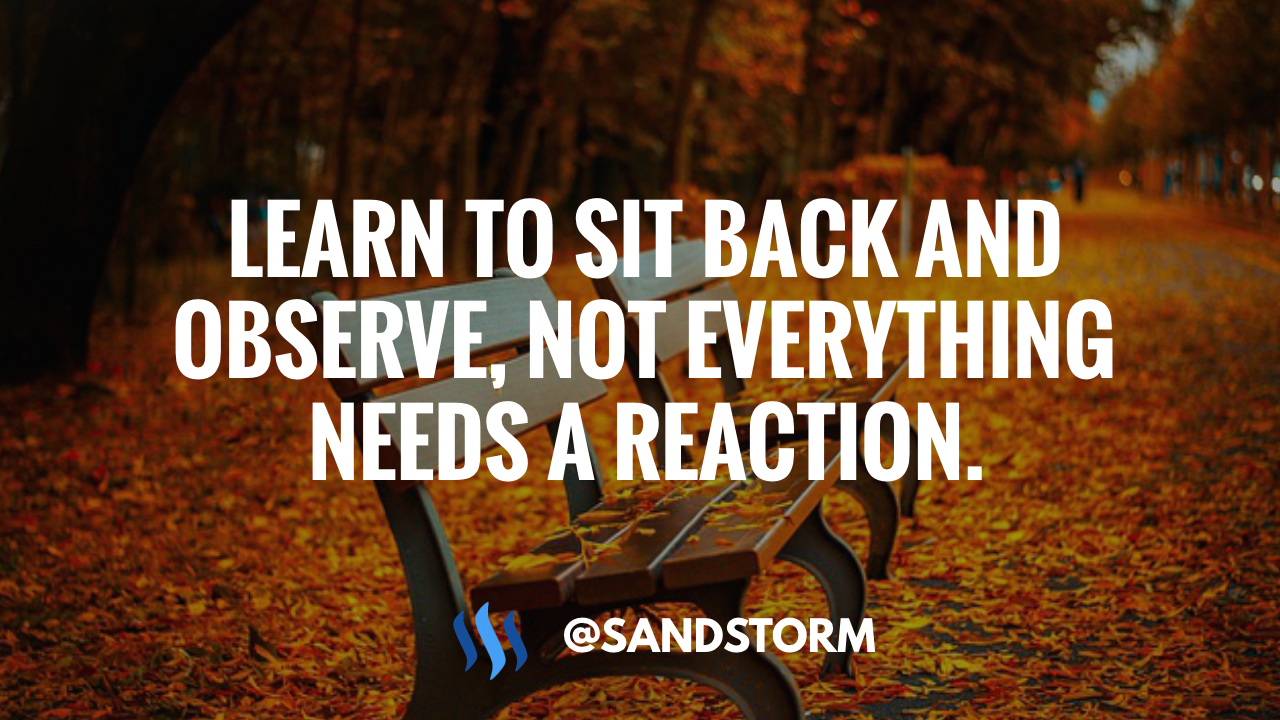In the fast-paced world we inhabit, the incessant demand for productivity often leaves us feeling overwhelmed and stressed. We find ourselves entangled in the relentless pursuit of success, often neglecting a crucial aspect of personal growth—observation. The art of sitting back and observing seems to have lost its significance in a society that values constant motion and immediate results. However, the wisdom lies in recognizing that not everything requires a time-off; sometimes, the remedy is found in pausing, reflecting, and understanding the nuances of the present moment.

The Modern Predicament: A Need for Constant Activity
In the digital age, where information travels at the speed of light, the pressure to keep up is intense. The incessant notifications, deadlines, and societal expectations create an environment where we feel compelled to be in perpetual motion. The culture of busyness has become a badge of honor, with rest often perceived as a sign of weakness. However, it is crucial to question this narrative and delve into the importance of sitting back to observe.
must read= learn to sit back and observe. not everything need – tymoff
The Power of Observation: A Source of Wisdom
Observation is a skill that goes beyond mere visual perception; it involves a deep engagement with the world around us. When we take a step back and observe, we allow ourselves the opportunity to gain insights, understand patterns, and make more informed decisions. This practice not only fosters self-awareness but also enhances our ability to navigate the complexities of life.
Mindfulness in Action: Embracing the Present Moment
Learning to sit back and observe is synonymous with embracing mindfulness—an age-old practice that has found renewed relevance in our hyperactive lives. Mindfulness encourages us to be fully present in the moment, free from the burdens of the past or the anxieties of the future. By honing this skill, we can develop a heightened sense of clarity and focus, enabling us to approach challenges with a calm and composed mindset.
The Illusion of Constant Productivity: Recognizing Burnout
The misconception that constant activity equates to productivity often leads to burnout. In the pursuit of success, we may push ourselves beyond our limits, neglecting the signs of physical and mental exhaustion. Taking a step back allows us to recognize these warning signals, providing us with the opportunity to recharge and rejuvenate before burnout takes its toll.

Creativity Flourishes in Stillness: The Role of Rest in Innovation
Contrary to popular belief, some of the most groundbreaking ideas emerge not during hectic work hours, but in moments of quiet reflection. When we give ourselves the time and space to sit back and observe, our minds are free to wander, fostering creativity and innovation. Many great thinkers and artists throughout history attribute their breakthroughs to moments of solitude and contemplation.
Cultivating Emotional Intelligence: Understanding Others
Observation extends beyond self-reflection; it plays a crucial role in understanding and empathizing with others. By actively listening and observing the nuances of human behavior, we develop emotional intelligence. This skill enhances our interpersonal relationships, allowing us to navigate social dynamics with empathy and compassion.
Striking a Balance: Incorporating Observation into Daily Life
Incorporating the art of observation into our daily lives requires a conscious effort to strike a balance. It doesn’t necessarily mean completely disengaging from our responsibilities; rather, it involves integrating moments of stillness into our routines. Whether through short mindfulness exercises, nature walks, or simply taking a few moments to breathe deeply, these practices can have a profound impact on our overall well-being.
The Importance of Reflection: Learning from Experience
Reflection is a powerful tool that complements observation. Taking time to reflect on our experiences allows us to extract valuable lessons and insights. It enables us to make more intentional choices, steering our lives in directions aligned with our values and aspirations.

Conclusion: Embracing the Art of Observation
In a world that glorifies constant activity, it is essential to recognize the profound benefits of learning to sit back and observe. Not everything requires a time-off in the traditional sense; sometimes, the most transformative moments occur in the stillness of observation. By embracing this art, we cultivate mindfulness, foster creativity, and gain a deeper understanding of ourselves and the world around us. So, let us challenge the notion that perpetual motion is the only path to success and, instead, find wisdom in the simplicity of sitting back and observing the beauty of the present moment.
